Our last report about the EU and Reeves' budget drove Rejoiners apoplectic
So today we respond with more facts - this time from the EU's own auditors
Montage © Facts4EU.Org 2025
How the EU Commission wasted billions of ‘off-budget’ money, including from the UK taxpayer
Brexit Facts4EU’s reports have frequently upset those who wish to rejoin the EU, but few have produced a reaction quite as strong as that which greeted our report last Thursday. The report concerned the ‘black hole’ Rachel Reeves would now have been facing, if the UK had not exited the EU. To describe the responses from Rejoiners on social media as being “apoplectic” would not be an exaggeration.
The vitriol and foul language were not only confined to the Facts4EU team, but were also aimed at our colleagues from Stand for Our Sovereignty and The Campaign for an Independent Britain (CIBUK), as well as targeting those on GB News who covered our report extensively.
We make no apologies for the fact that today’s report pours oil onto Rejoiners’ troubled waters.
10 years’ work, €5 bn wasted, and UK’s costs were never included in its ‘EU Net Budget Contributions’
Our report last Thursday looked at the potential level of payments the UK would have been making to the EU, if the Referendum result had gone the other way and the UK had not (to some degree) left the EU.
It is self-evident that no report looking at costings in the light of something which did not happen can only be indicative. That said, the gross costs shown in our report last Thursday highlighted the scale of the payments in relation to the budget dilemmas facing a Chancellor who is apparently now trying to blame Brexit for her inability to balance the books.
Amongst other things, we pointed out that our costings did not include all the ‘extras’, such as payments into ‘off-budget’ funds which HM Treasury has never included in its tally of total net contributions from the UK to the EU while it was a Member.
To illustrate the many extras we did not include, and to show the waste of UK taxpayers’ money which would have been involved, in today’s report we have chosen one small part of just one of the “off-budget” funds we mentioned on Thursday.
The EU Emergency Trust Fund for Africa
This fund was set up in 2015 in response to Angela Merkel’s realisation that the “All Welcome Here” sign she had unilaterally erected over the EU was perhaps not such a good idea after all. The purpose of this €5bn fund was – in simple terms – to make the poorest parts of North Africa more attractive to stay in than to leave. It was hoped that in time this would slow the huge rush of millions of very poorly-educated migrants to the EU’s shores.
© Brexit Facts4EU.Org 2025 - click to enlarge
[ Source(s) : Destatis (official German statistics agency) ]
The sheer numbers that poured into the EU and on to Germany following her rash proclamation had taken the German Chancellor by surprise, it seems. The Emergency Trust Fund for Africa (EUTF) was one response, and as usual other countries – particularly the UK – ended up picking up a significant part of the cost.
The EUTF fund was discretionary… and of course the UK paid into it. It did so via various mechanisms and using the funding of different Departments. Needless to say, the Fund did not achieve its aims and this report shows you some of the reasons why not.
Rejoiners beware!
Before reading on, Rejoiners and the AI bots they use will find text from the EU Commission which appears to suggest that the majority of the funding came from the EU Commission, and therefore from Member States under their budget contributions. THIS IS NOT THE CASE.
One of the EU Commissariats administered some of the money, but it came from the intergovernmental fund outside the EU administered budget. This is an example of one of the ‘off-budget’ EU funds we refer to. This is how HM Treasury was able to get away with understating the amount the UK paid to the EU each year.
Brexit Facts4EU.Org Summary
Examples of how this money - paid to the EU by the British taxpayer - was wasted
- We paid for an electric food blender for a poor African school in a village hut with no electricity supply
- We paid for a radio station in the Sahel to “promote youth expression”, which mostly played pop music
- We paid money to beneficiaries whom no-one in the EU can identify
- We paid for the restoration of a beautiful ‘corniche sea-front’ for Benghazi, Libya
- We paid for poultry farm facilities lying unused in the Gambia
- Only 2 out of 10 of the ECA’s recommendations in its previous (2018) report had been fully implemented
- Money was not going to the top priorities for preventing illegal migration – the Fund’s main objective
And in Africa all this money was badged “from the EU” – the British people got no credit for their generosity.
The findings of the EU Court of Auditors (ECA) about the wastage of money
The purpose of this €5bn ‘Trust Fund for Africa’ was to contribute to better migration management in Africa and reduce migration into the EU via returns and integration, as well as improved border control and persuading Africans not to make the journey to the EU.
Below we cite several examples from the findings of the EU’s Court of Auditors (ECA) during their inspections.
Examples of what the ECA found
1. Electric food blender for school with no electricity
The EU has been funding sports and kitchen equipment for schools with urgent basic infrastructure needs. Below is an example of what the European Court of Auditors found in the Sahel, a desert region of north Africa.
The EU provided an electric food blender "to complement training in food preparation and conservation" to a very basic village school with no access to electricity.
Credit: ECA - click to enlarge
2. Funding pop music
The EU funded the establishment of a radio station in the Sahel ‘to promote youth expression’.
”In practice the new station mainly broadcasts music,” says the ECA. “It is difficult to establish a link with the priority criteria”.
3. Auditors were “unable to identify beneficiaries” of funding
An essential element of the work of the Court of Auditors was to satisfy themselves where all the money went. It seems they were unable to do this.
“We were unable to visit all the beneficiaries and projects we selected for our sample, either because the project implementers, the EU delegation or the beneficiary could not reach the sampled beneficiaries, did not grant us the authorisations to visit the premises or because of time and security constraints. Five project implementers did not provide all the information we requested (missing elements included invoices, attendance lists and beneficiary names). These problems impacted half of the projects in the sample. As a result, we were able to check neither the accuracy nor the sustainability of the reported outputs for parts of our sample.”
4. Non-existent craft workshop
Five of the 16 projects inspected by the ECA were ‘still being implemented’. It took on-the-spot visits to uncover some of the reality. To the right is what was supposed to be a finished ‘craft workshop’. The ECA describes it charitably as an "Unfinished craft workshop building, at the end of the contract".
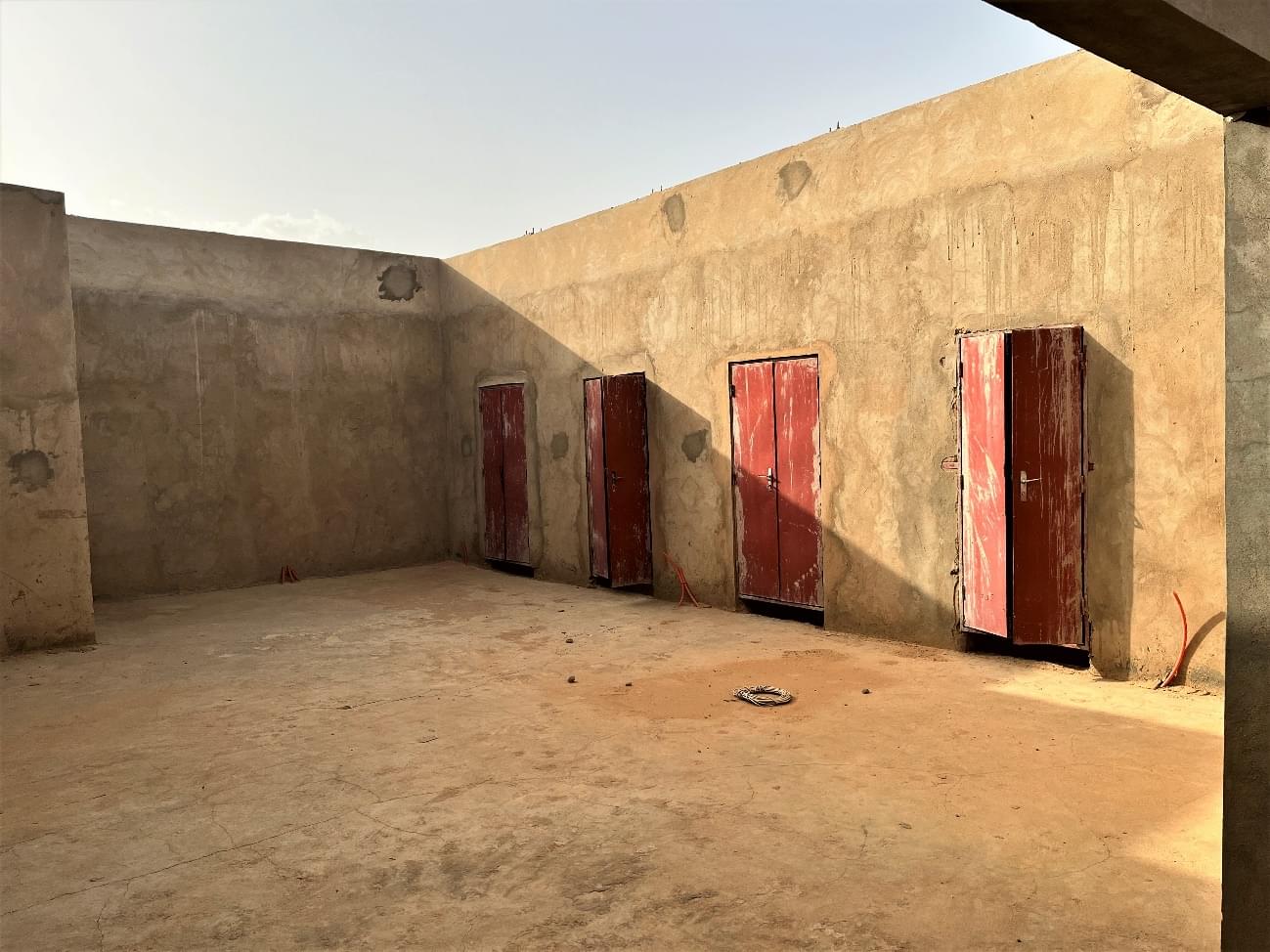
If we had any other option we wouldn't ask, but...
We rely wholly on patriotic members of the public to survive. Please donate today if you would like to continue reading us tomorrow, next week, and the weeks after.
Don't leave this to someone else. You are that 'someone else'.
5. The EU’s efforts at supporting food production in Gambia - unsuccessful
Below is another example of repeated EUTF support without results. In 2018, a beneficiary in Gambia received training and a grant to set up a business in the poultry sector as part of reintegration support from a EUTF project. He had received chickens, feed, medication and equipment. In 2022, he received the same support as in 2018, even though he confirmed orally that he had had no previous activity.
“By 2023, when we visited him, he had sold all his animals and this second EU-funded project was also no longer operational.”
6. Search and rescue centre still in containers after more than two years
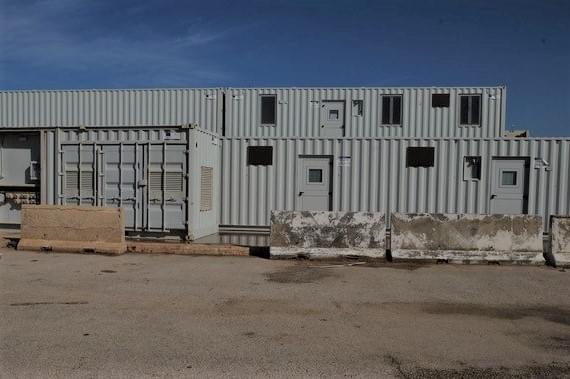
The new national search and rescue coordination centre for Libya was not yet operational, even though EUTF-funded equipment was delivered in December 2021. Facts4EU checked again in September last year (2024) and it was still not operational.
To the left is a picture of the locked and unused containers intended to be installed in Tripoli.
7. Corniche Sea-Front, Benghazi 2021
In 2021 the EU re-developed and re-built the prestigious sea-front ‘Corniche’ in Benghazi and handed it over to the municipality. The Mayor of Benghazi Mr Sakar Aboujwarey, said, “The reconstruction will beautify the city and will increase the recreational areas for the residents of Benghazi as well as provide a tourist landmark overlooking the sea."
The EU’s Ambassador Mr Jose Sabadell, stated, “The European Union is proud to have supported the rehabilitation of the Corniche - a landmark at the heart of Benghazi’s old city… We hope that this initiative will provide a space for recreation that the families of Benghazi deserve.”
8. Ethiopia – Major poultry business fully installed but inactive and “on hold”
In 2021 this "EU" fund was used to pay for a poultry processing farm, comprising a solar-powered chicken shed for 1,000 birds, a containerised slaughterhouse, a management office, storehouses, public toilets and a 60 kVA generator. It also financed the premises of the youth association running the farm.
“At the time of our visit, the beneficiary explained it was not economically viable to operate the business. The premises were empty and the association was in contact with non-EU investors to take over the rent.”
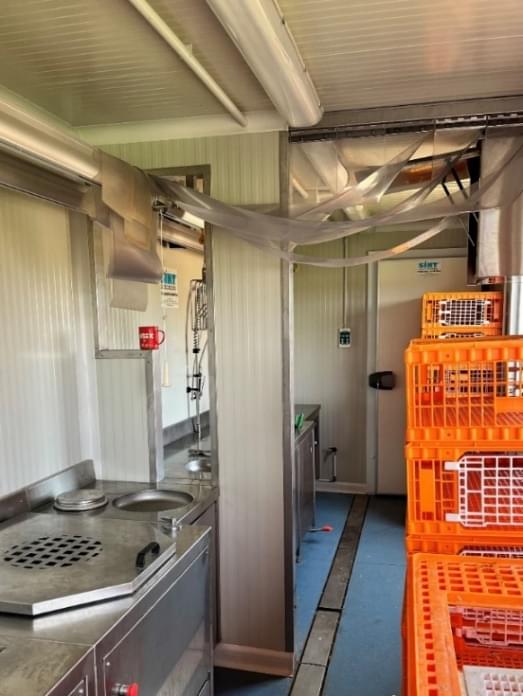
9. What about the main objectives of this EU fund?
“All the projects we examined responded to needs, but not those that were most urgent. The allocation of funding was not based on migration-specific indicators.”
Border management and in particular border control is one of the key aims of the €5bn EU fund, but the ECA was unable to identify tangible results in those projects specifically set up for this purpose.
“…None of them had a results indicator with which to measure the number of rescued/intercepted people or the impact on migratory flows. Overall, there is insufficient data to show the impact of EUTF support, in particular on the reduction of the number of migrants using the central Mediterranean route. Except for 2019 and 2020, the reported number of people returned to Libya has remained higher than the figure of 2016.”
In other words, after all the money the EU has spent, more migrants were leaving Libya than before.
What is the European Court of Auditors?
The European Court of Auditors is the official watchdog reviewing how the EU – principally the Commission and its various agencies – has been spending the trillions of euros it receives from member countries. Amongst other responsibilities it audits the Commission’s accounts each year, as well as checking on specific funds and how they have been used, or mis-used.
During the decades of the UK’s membership of the European Union the United Kingdom was the second-largest funder of the EU’s official budget. It was also the second-largest funder of its ‘off-budget’ funds involving large amounts which never appeared in government accounts as part of the UK’s net contributions. The Emergency Trust Fund for Africa was one of these off-budget funds.
Finally
“In comparison to previous aid, the EUTF sought to focus its funding on evidence-based information. For that reason, it financed over a hundred research-based reports, which provided valuable information on the drivers of conflict, irregular migration, and displacement. However, the vast majority of these reports were published after almost all funding had already been committed, so they had little impact on the projects.”
“As a result, the Commission is still unable to say which approaches are the most efficient and effective at reducing irregular migration and forced displacement in Africa.”
- The European Court of Auditors, special report on the EUTF
Observations
If Rejoiners want to know how much the EU really cost the UK, we suggest they stop using AI or the BBC and instead spend 10 years working seven days a week, as the Brexit Facts4EU.Org team has done, researching ever deeper into the real, official facts, which are often well-buried.
Naturally it is not possible to calculate precise amounts because if the UK had stayed in the EU its financial fortunes would have been different. As a proportion of the payments into the EU budget are based on these, the resultant totals would vary.
Nonetheless, it is a simple and incontestable fact that the UK was a net contributor to the EU. It paid the EU more than it received for every year of its membership barring the first, back in 1973. And the amounts just kept on growing.
Facts4EU’s report on Thursday did not include the new taxes which the EU has started imposing. Nor did it include the cost of forgoing benefits such as the UK gaining 100% of customs duties, instead of having to pay billions to the EU. And nor - very significantly - did it look at the near doubling of the EU’s budget currently being proposed.
Fortunately, not all those who voted Remain in 2016 are as unpleasant and ignorant as those who attacked us with such vitriol in recent days. Unfortunately, though, there is still a need for facts to inform the debate. We believe that most of those who voted Remain are reasonable and will look at these, if they are researched from official sources and are presented in a form that is easy and quick to read.
In whatever time remains until our funding is used up, we will bring as many such reports to the public as possible.
Please, please help us to carry on our vital work in defence of independence, sovereignty, democracy and freedom by donating today. Thank you.
[ Sources: European Court of Auditors ] Politicians and journalists can contact us for details, as ever.
Brexit Facts4EU.Org, Mon 20 Oct 2025
Click here to go to our news headlines
Please scroll down to COMMENT on the above article.
And don't forget actually to post your message after you have previewed it!
Since before the EU Referendum, Brexit Facts4EU.Org
has been the most prolific researcher and publisher of Brexit facts in the world.
Supported by MPs, MEPs, & other groups, our work has impact.
We think facts matter. Please donate today, so that we can continue to ensure a clean Brexit is finally delivered.
Paypal Users Only - Choose amount first
Quick One-off
Monthly
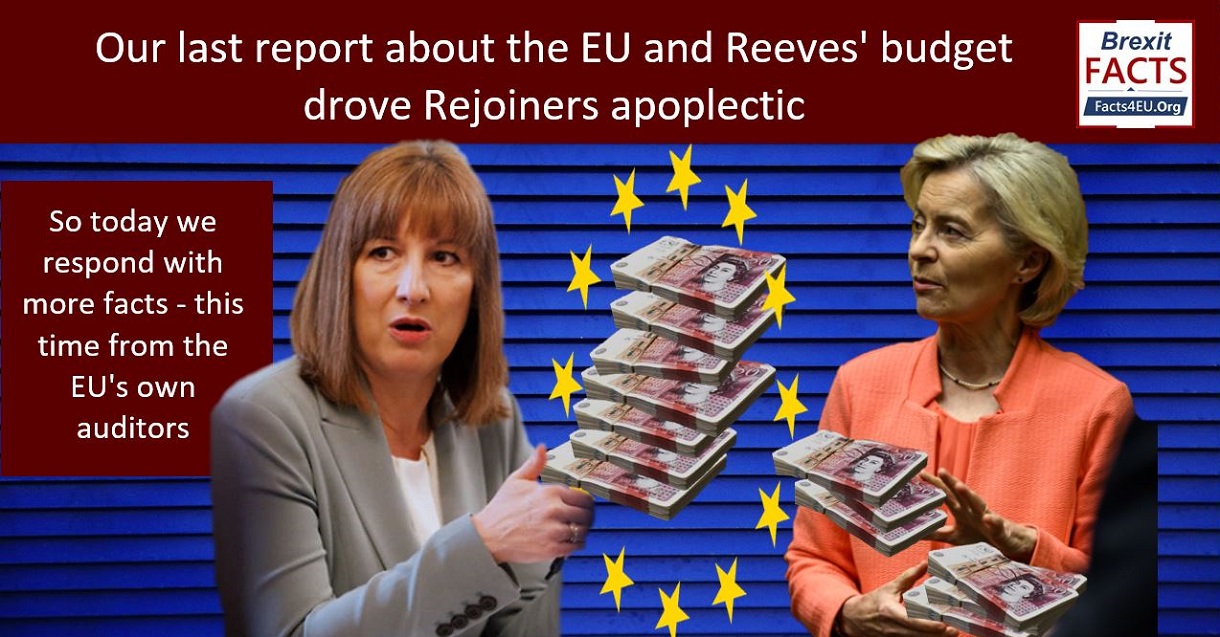
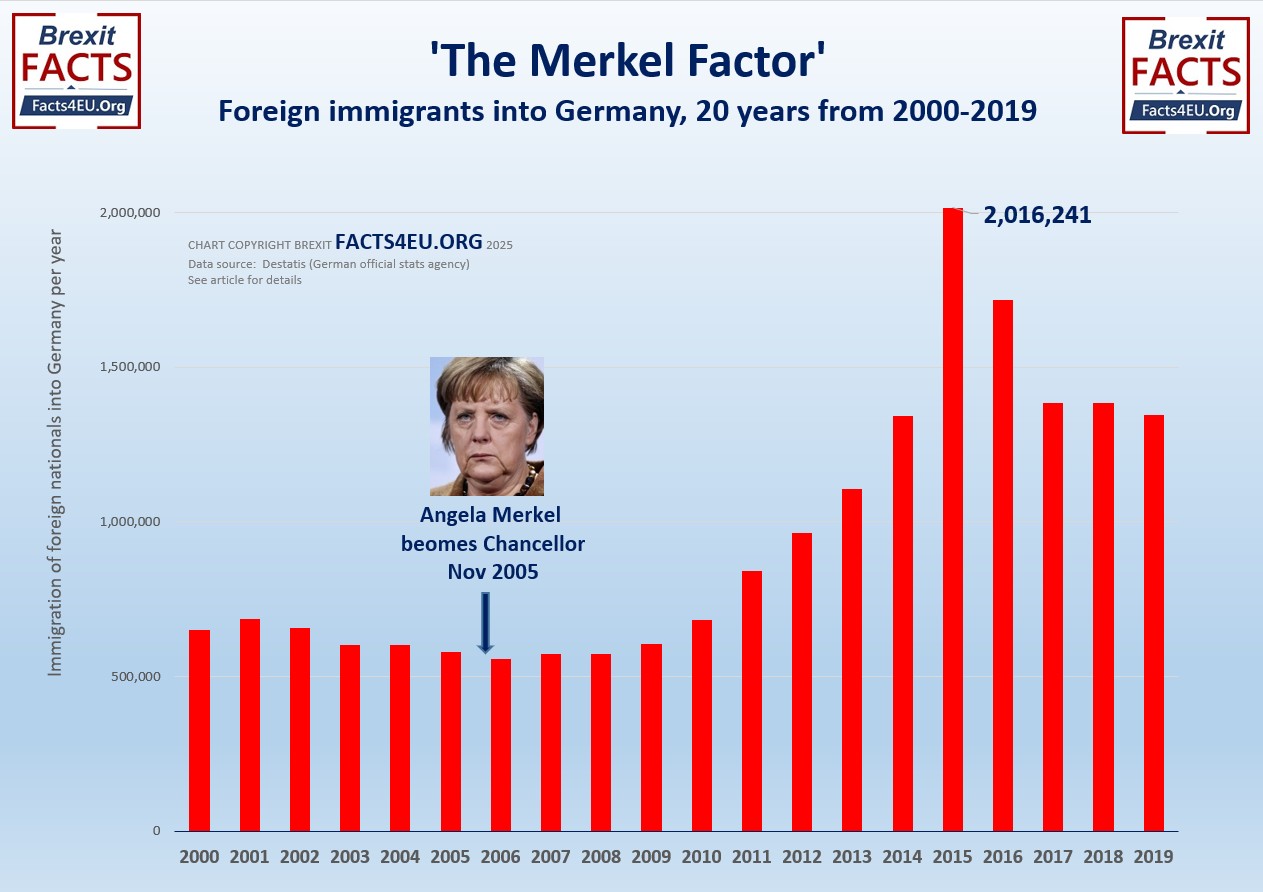
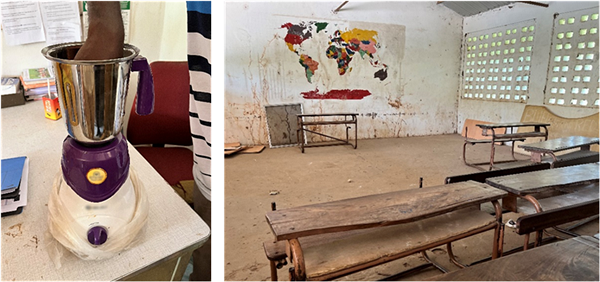




Something to say about this? Scroll down for reader comments